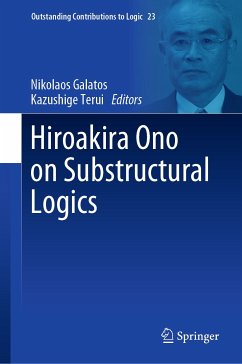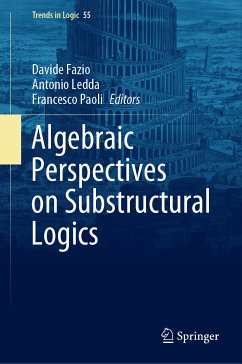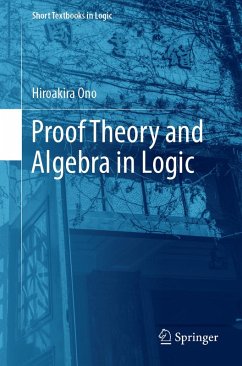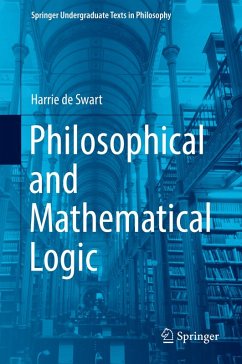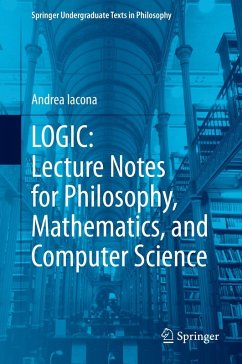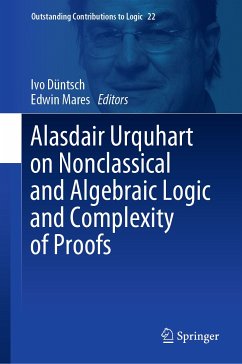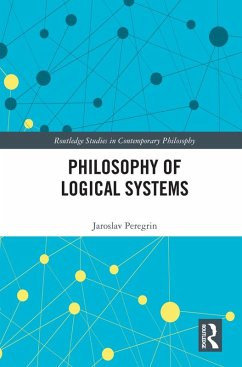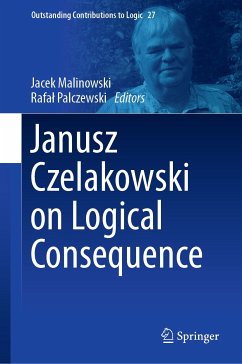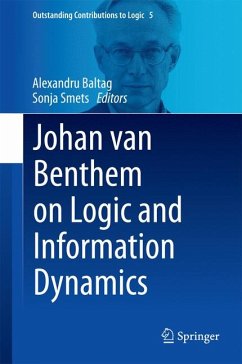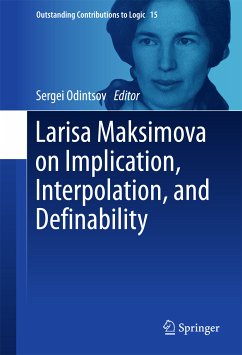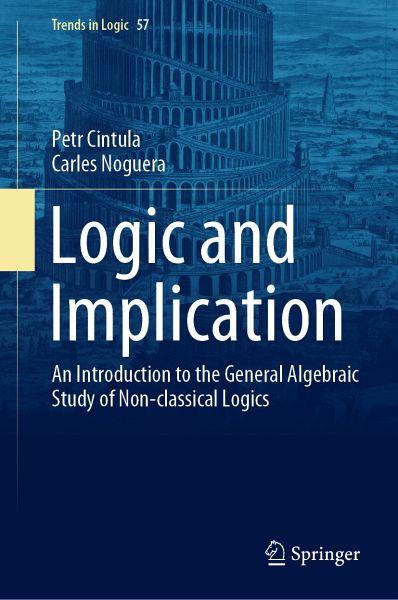
Logic and Implication (eBook, PDF)
An Introduction to the General Algebraic Study of Non-classical Logics
Versandkostenfrei!
Sofort per Download lieferbar
96,95 €
inkl. MwSt.
Weitere Ausgaben:

PAYBACK Punkte
48 °P sammeln!
This monograph presents a general theory of weakly implicative logics, a family covering a vast number of non-classical logics studied in the literature, concentrating mainly on the abstract study of the relationship between logics and their algebraic semantics. It can also serve as an introduction to (abstract) algebraic logic, both propositional and first-order, with special attention paid to the role of implication, lattice and residuated connectives, and generalized disjunctions.Based on their recent work, the authors develop a powerful uniform framework for the study of non-classical logi...
This monograph presents a general theory of weakly implicative logics, a family covering a vast number of non-classical logics studied in the literature, concentrating mainly on the abstract study of the relationship between logics and their algebraic semantics. It can also serve as an introduction to (abstract) algebraic logic, both propositional and first-order, with special attention paid to the role of implication, lattice and residuated connectives, and generalized disjunctions.
Based on their recent work, the authors develop a powerful uniform framework for the study of non-classical logics. In a self-contained and didactic style, starting from very elementary notions, they build a general theory with a substantial number of abstract results. The theory is then applied to obtain numerous results for prominent families of logics and their algebraic counterparts, in particular for superintuitionistic, modal, substructural, fuzzy, and relevant logics.
The bookmay be of interest to a wide audience, especially students and scholars in the fields of mathematics, philosophy, computer science, or related areas, looking for an introduction to a general theory of non-classical logics and their algebraic semantics.
Based on their recent work, the authors develop a powerful uniform framework for the study of non-classical logics. In a self-contained and didactic style, starting from very elementary notions, they build a general theory with a substantial number of abstract results. The theory is then applied to obtain numerous results for prominent families of logics and their algebraic counterparts, in particular for superintuitionistic, modal, substructural, fuzzy, and relevant logics.
The bookmay be of interest to a wide audience, especially students and scholars in the fields of mathematics, philosophy, computer science, or related areas, looking for an introduction to a general theory of non-classical logics and their algebraic semantics.
Dieser Download kann aus rechtlichen Gründen nur mit Rechnungsadresse in A, B, BG, CY, CZ, D, DK, EW, E, FIN, F, GR, HR, H, IRL, I, LT, L, LR, M, NL, PL, P, R, S, SLO, SK ausgeliefert werden.
Alle Preise in Euro und inkl. der gesetzl. MwSt. | Innerhalb Deutschlands liefern wir preisgebundene Bücher versandkostenfrei. Weitere Informationen: bitte hier klicken
Support
Bitte wähle dein Anliegen aus:
Rechnungen
Bestellstatus
Retourenschein
Storno



